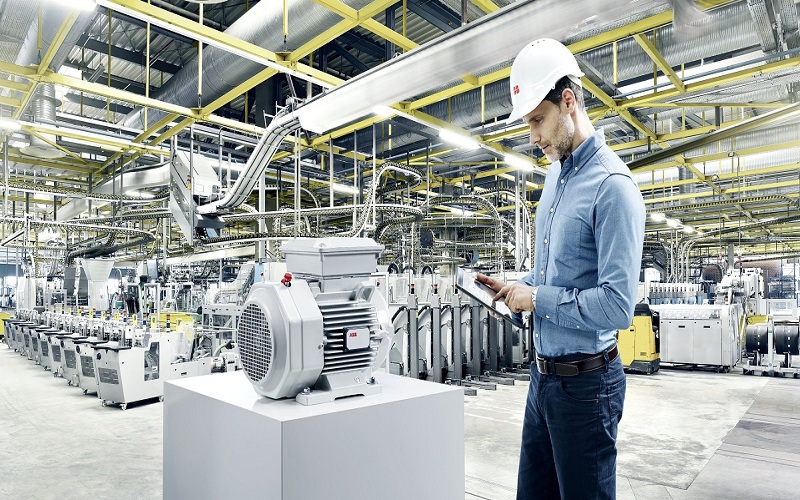In the vibrant landscape of Saudi Arabia’s industrial sector, efficiency reigns supreme. At the heart of this efficiency lie cutting-edge industrial tools and machinery that power various sectors, from manufacturing to construction. As the Kingdom continues its journey towards diversification and economic growth, the role of industrial equipment companies becomes increasingly pivotal. The realm of industrial tools and machinery in Saudi Arabia, exploring their significance, advancements, and the companies driving innovation in this domain.
1. The Significance of Industrial Tools and Machinery
In Saudi Arabia, industrial tools and machinery serve as the backbone of numerous sectors, propelling progress and productivity. From heavy-duty equipment used in construction to precision machinery in manufacturing plants, these tools play a crucial role in driving efficiency and competitiveness. In an era defined by automation and technology, the integration of advanced industrial equipment not only enhances operational capabilities but also ensures compliance with global standards of quality and safety.
2. Technological Advancements in Industrial Equipment
The landscape of industrial tools and machinery is constantly evolving, driven by technological advancements and innovation. In Saudi Arabia, this evolution is evident in the adoption of smart technologies, IoT (Internet of Things) integration, and the emergence of Industry 4.0 concepts. Robotics, artificial intelligence, and data analytics are revolutionizing processes, offering greater precision, reliability, and efficiency. Whether it’s automated assembly lines or intelligent monitoring systems, these advancements are reshaping the industrial landscape and paving the way for enhanced productivity and sustainability.
3. Driving Innovation: R&D Initiatives and Collaborations
Innovation lies at the core of the industrial equipment sector, driving continuous improvement and competitiveness. In Saudi Arabia, initiatives aimed at fostering research and development are gaining momentum, supported by government agencies and industry stakeholders. Collaborations between academia, research institutions, and private enterprises are fueling innovation, leading to the development of advanced technologies and solutions tailored to the Kingdom’s specific requirements.
4. Addressing Industry-Specific Hurdles
Despite the strides made in the realm of industrial tools and machinery, challenges persist, requiring proactive measures and strategic solutions. Supply chain disruptions, regulatory complexities, and skilled labor shortages are among the key hurdles faced by industrial equipment company in Saudi Arabia. Moreover, the transition towards sustainable practices and energy-efficient solutions presents both opportunities and challenges, necessitating a holistic approach towards environmental stewardship and resource management.
5. The Role of Industrial Equipment in Vision 2030
As Saudi Arabia charts its course toward Vision 2030, the role of industrial equipment becomes increasingly critical in achieving key objectives of economic diversification and sustainability. The National Industrial Development and Logistics Program (NIDLP) aims to enhance the Kingdom’s industrial capabilities through strategic investments and partnerships, driving innovation, and fostering a conducive business environment. Industrial equipment companies are poised to play a pivotal role in this journey, aligning their strategies with the broader goals of Vision 2030 and contributing to the Kingdom’s socio-economic development.
6. The Rise of Smart Industrial Solutions
In line with global trends, Saudi Arabia is embracing digital transformation across its industrial landscape. Smart industrial solutions, powered by technologies such as the Internet of Things (IoT) and artificial intelligence (AI), are revolutionizing traditional processes, unlocking new levels of efficiency, and enabling predictive maintenance strategies. For instance, sensor-equipped machinery can now collect real-time data on performance metrics, enabling proactive maintenance interventions to prevent costly downtime. As the demand for connected and intelligent solutions grows, industrial equipment companies are at the forefront of delivering cutting-edge technologies that empower businesses to thrive in the digital age.
7. The Importance of Quality Assurance
In high-risk industries such as oil and gas, petrochemicals, and construction, safety is paramount. Industrial tools and machinery must adhere to stringent quality standards and regulatory requirements to mitigate risks and ensure worker safety. Industrial equipment companies in Saudi Arabia play a crucial role in this regard, offering certified products and solutions that meet international safety standards. From robust safety protocols to comprehensive training programs, these companies prioritize safety and compliance, fostering a culture of responsibility and accountability across industries.
8. Empowering Local Talent: Investing in Skills Development
The success of Saudi Arabia’s industrial sector hinges on the availability of skilled talent equipped with the knowledge and expertise to harness the full potential of industrial tools and machinery. Recognizing this, industrial equipment companies are investing in skills development initiatives aimed at empowering local talent and bridging the skills gap. Collaborations with vocational training institutions, apprenticeship programs, and internship opportunities are helping to nurture a skilled workforce capable of driving innovation and competitiveness in the industrial landscape.
9. Green Technologies and Eco-Friendly Practices
Amid growing concerns about environmental sustainability, industrial equipment companies are increasingly prioritizing green technologies and eco-friendly practices. Energy-efficient machinery, renewable energy solutions, and sustainable manufacturing processes are gaining traction as businesses strive to reduce their carbon footprint and minimize environmental impact. In Saudi Arabia, where sustainability is a key pillar of Vision 2030.
10. Embracing Collaboration: Partnerships for Success
In a rapidly evolving industrial landscape, collaboration is essential for driving innovation and staying ahead of the curve. Industrial equipment companies in Saudi Arabia are embracing partnerships with technology providers, research institutions, and government agencies to co-create solutions that address industry-specific challenges and unlock new opportunities. By leveraging collective expertise and resources, these collaborations foster a culture of innovation and resilience, enabling businesses to navigate complexities and drive sustainable growth in the long term.
11. Adapting to Market Dynamics: Flexibility and Agility
In the dynamic landscape of the industrial sector, market dynamics can fluctuate rapidly, presenting challenges and opportunities for industrial equipment companies. Flexibility and agility are key attributes that enable these companies to adapt to changing market conditions and customer demands. Whether it’s adjusting production schedules to meet shifting demand patterns or quickly introducing new products to capitalize on emerging trends, flexibility is essential for maintaining competitiveness and driving growth. Industrial equipment companies in Saudi Arabia are adept at navigating market dynamics, leveraging their agility to seize opportunities and mitigate risks in an ever-evolving business environment.
12. Harnessing the Potential of Additive Manufacturing
Additive manufacturing, commonly known as 3D printing, is revolutionizing the way industrial components and products are produced. This disruptive technology offers numerous advantages, including cost-effectiveness, rapid prototyping capabilities, and design flexibility. In Saudi Arabia, industrial equipment companies are increasingly harnessing the potential of additive manufacturing to streamline production processes, reduce lead times, and unlock new design possibilities. From aerospace components to medical implants, additive manufacturing is transforming various industries, offering innovative solutions that drive efficiency and competitiveness.
Conclusion
In the dynamic landscape of Saudi Arabia’s industrial sector, industrial tools and machinery serve as catalysts for growth and progress. From enhancing operational efficiency to driving innovation and sustainability, these tools play a multifaceted role in shaping the Kingdom’s industrial landscape. As the Kingdom embarks on ambitious initiatives such as Vision 2030, the role of industrial equipment companies becomes increasingly pivotal, driving innovation, and spearheading advancements that pave the way towards a prosperous and sustainable future



